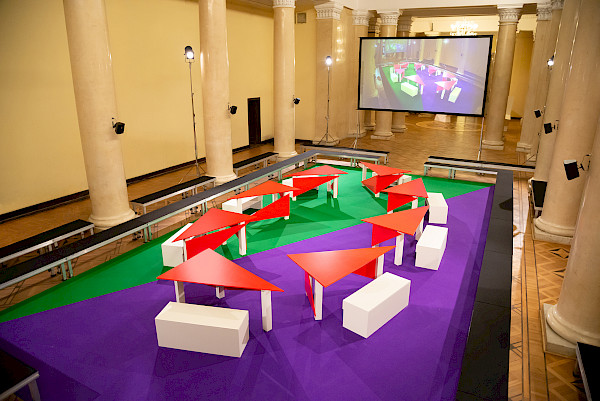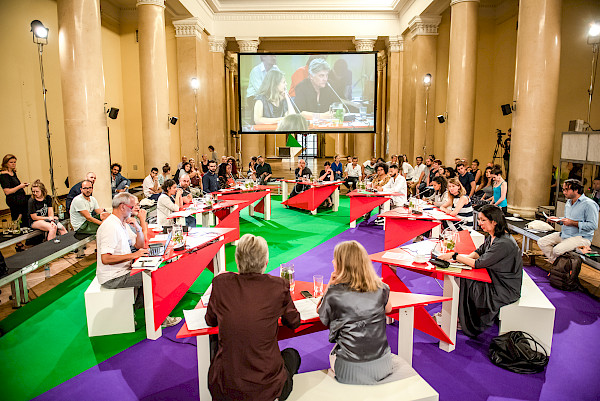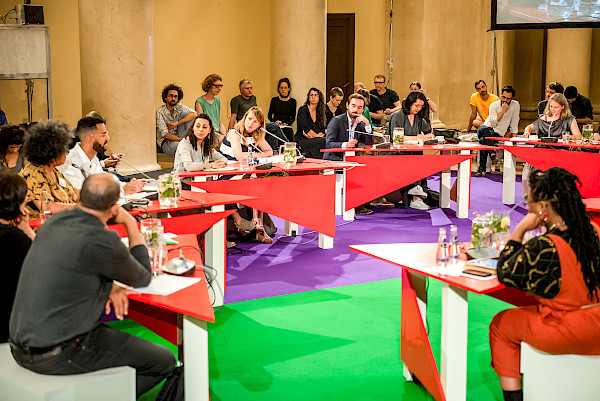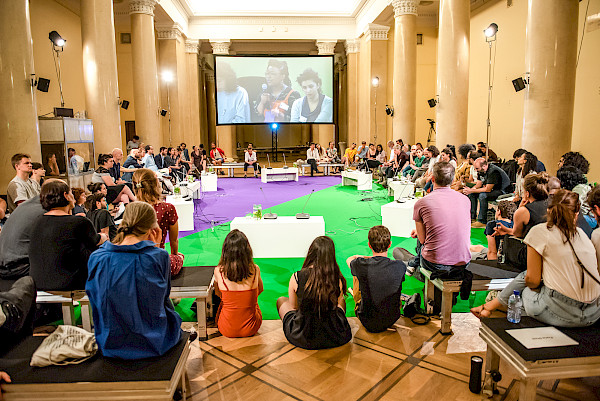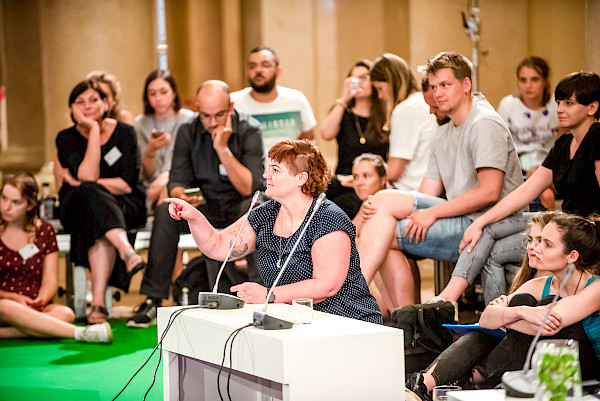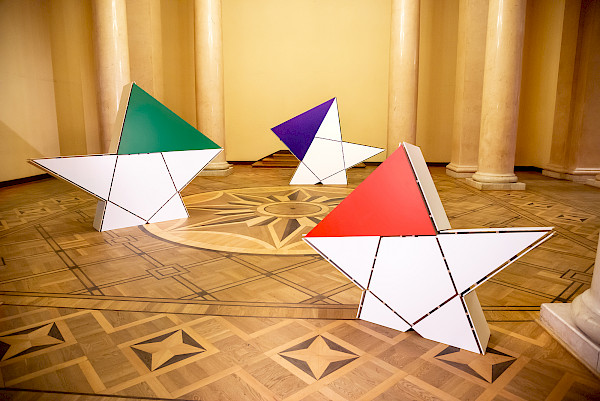TRANSUNIONS
2019
June 22, 2019
Palace of Science and Culture, Warsaw, Poland
TRANSUNIONS gathered various organizations invested in theorizing, mapping and practicing new models of emancipatory transnationalism in the field of politics, economy, ecology, education and culture. Political parties, civil platforms, think tanks and activist groups gathered to discuss (1) the meaning of the nation-state; (2) the challenges and gains of transnational organizations today; and (3) the future of a new transnational union. In the third block, speakers and participants removed the tables to undo hierarchies that were experienced as a hindrance to unionization.
TRANSUNIONS took place in the Palace of Science and Culture, a monumental architecture surrounded by sculptures of internationalist revolutionaries, “gifted” from Stalin to the Polish people. From the Cold War onwards, Poland – in its alliance with the Soviet Union – invested substantially in post-colonial nations in North-Africa and the Middle East. Polish architects, planners, engineers and artists traveled abroad, to develop infrastructures such as the fair area in Accra, the masterplans of Baghdad, Algiers, and the region of Tripoli as well as housing neighborhoods in Iraq, Libya, and Syria. In a time of growing ultranationalism, TRANSUNIONS aimed to redefine this internationalist heritage in light of a new transnational horizon.
TRANSUNIONS is part of the ongoing New Unions campaign, that departs from the current political, economic, humanitarian, and environmental crisis of Europe with the aim of assembling representatives of transdemocratic movements and organizations to propose scenarios for new future unions.
With contributions by Dounia Kchiere (communications strategist, former United Nations/UNICEF); Fernando Burges (Unrepresented Nations and Peoples Organization, UNPO); Andrzej W. Nowak (philosopher, Poznan University); Abderrahim Kassou (Alternatives Forum of Morocco, FMAS); Mike van Graan (African Cultural Policy Network, ACPN); Diana Arce and Angelo Camufingo (Black Lives Matter Berlin); John Jordan (The Laboratory of Insurrectionary Imagination, Zone a Defendre ZAD, Notre Dame des Landes); Zdenka Badovinac (L’Internationale); Dilar Dirik (Kurdish Women’s Movement); Siana Bangura (Black Lives Matter UK); Lorenzo Marsili (European Alternatives/ School of Transnational Activism); and Fiona Dove (Transnational Institute, TNI). Co-chaired by Joanna Warsza (curator) and Chris Keulemans (writer, journalist).
-
project by:
Jonas Staal
-
In collaboration with:
Biennale Warszawa
-
project team:
Jonas Staal (artist), Anna Galas-Kosil (curator, co-programmer), Bartosz Frąckowiak (curator, co-programmer), Paul Kuipers (architect), Remco van Bladel (graphic designer), Ola Knychalska (producer Warsaw Biennale), Younes Bouadi and Nadine Gouders (production and coordination Studio Jonas Staal), Marta Ankiersztejn (photography)
-
Commissioned by:
Biennale Warszawa






